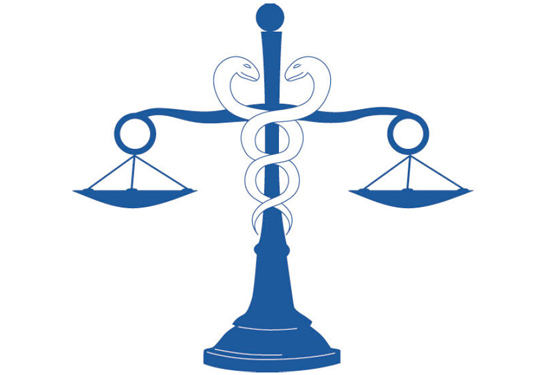Parental Rights Foundation Shares Medical Ethics Report

In This Issue:
- Report: Parental Rights Foundation Shares Report on Medical Ethics in Child Abuse Investigations
- By the Numbers: State Parental Rights Statutes Under Way
- Go Deeper: ‘Medical Ethics Concerns’ in Review
New Email Layout! Quickly find the part or parts of this email that are of most interest to you and your friends. We’re now including a story (or report), statistic, and more!
•••••••••••••••••••••••••
Report: Parental Rights Foundation Shares Report on Medical Ethics in Abuse Investigations
The Parental Rights Foundation is excited to share another scholarly article on the tragic loss of parental rights in the medical setting through physical child abuse investigations. The paper, by George Barry and Diane Redleaf of the Family Defense Center in Chicago, points out disturbing medical ethics violations in the subspecialty field of child abuse pediatrics. (See the Going Deeper section of this email for more on the paper’s content.)
We have been privileged to sit down and talk with Diane Redleaf on multiple occasions in recent months, both about her work in the Chicago area and about ways our organization can partner with hers to protect children by empowering parents caught up in the child welfare system. We are excited to work with her, honored to share her paper with you, and looking forward to getting a lot done in cooperation with her in the months and years ahead.
Through her work, Redleaf has developed a number of professional and organizational contacts that are traditionally on the left side of the political aisle. ParentalRights.org, through the nature of its founding, started out with similar contacts on the right side of the aisle. We look forward to working with Redleaf and other of her colleagues to erase the aisle altogether as we work to defend families, regardless of political persuasion.
•••••••••••••••••••••••••
By the Numbers: State Parental Rights Statutes Underway
| 5 | Successive sessions in which Rep. Kurt Bahr has introduced parental rights legislation in the Missouri legislature. This year’s HB345 is currently in the House Judiciary Committee. |
| 4 | Number of states with general parental rights legislation currently introduced (Mississippi, Maine, Missouri, and Wyoming). |
| 9-0 | Vote by which Wyoming parental rights bill HB153 passed out of its House committee on January 23. It awaits a vote in the full House. |
| 19 | Cosponsors on Wyoming’s parental rights bill, including 17 Republicans and 2 Democrats. |
•••••••••••••••••••••••••
Going Deeper: “Medical Ethics Concerns” in Review
Writing for the Family Defense Center in Chicago, George J. Barry and Diane L. Redleaf published their criticism of the sub-specialty of child abuse pediatrics. In studying the day-to-day practices of the profession, Barry and Redleaf found that more often than not the “experts” violate several core principles adopted and recognized by the American Medical Association Code of Ethics and the Committee on Child Abuse and Neglect of the American Academy of Pediatrics.
“We submit, in this Paper,” reads the executive summary, “that this system of child abuse investigation and medical assessment is failing the children and families. We also submit that the failings are due at least in part to practices that are ethically questionable at best or plainly unethical at worst…. [W]e believe that the medical profession has turned a blind eye to the treatment of children and families who are the victims of misplaced child abuse allegations and we are concerned about developments in the handling of medically complex allegations that make these problems worse, not better.”
The paper does not look so much at the legality of these new practices – how they compare to the dictates of law – as at the question of whether they are ethical – how they comport with “medical ethics” as declared and adopted by respected medical associations.
Redleaf, who is a 1979 graduate of Stanford Law School and the legal director of the Family Defense Center, drew upon her experiences defending actual parents in family court, in part by including 5 real-life case studies in her paper.
“In the typical Family Defense Center medically complex case,” she summarizes, “parents are eventually exonerated and children are returned home, but only after intervention by the child protection system that lasted weeks, months, or even years.” That intrusion, the paper holds, causes permanent damage to the entire family.
“In the spirit of ‘first do no harm,’” the authors conclude in part, “the medical profession should recognize when its practices cause harm and should work to mitigate that harm whenever possible.”
Barry and Redleaf also argue that child abuse specialists who interview parents for primarily forensic (evidence-gathering) reasons and not medical reasons violate the principle that doctors are ethically prohibited from participating in interrogations.
These and other concerns fill the 114 pages of the review, which is well worth the read to parents caught in the cross hairs of a failing system, and to doctors troubled by the ethically-questionable direction their profession has taken in recent years.
You can read the paper in its entirety at the Parental Rights Foundation here.
Sincerely,
Michael Ramey
Director of Communications & Research
